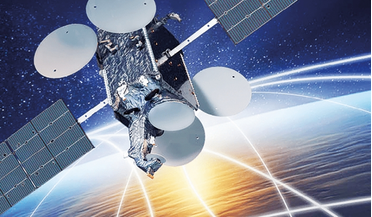 November 2019
The economic promise of space
November 2019
The economic promise of space
... of coal, oil, natural gas or nuclear energy. Moreover, significant investment in SPS will enable in-space manufacturing. To make space industry profitable, cheap energy will be required to power the extraction of raw materials from mining sites...
 April 2020
Replacing hydrazine fuel with a greener alternative
April 2020
Replacing hydrazine fuel with a greener alternative
... when hydrazine is used, as Intelsat experienced directly when it bought a ride on the Long March 3B. So, naturally, the space industry needs a better option. Satellites must have some sort of propulsion to enable them to de-orbit, thus fighting the...
 October 2020
Open Source Space
October 2020
Open Source Space
... few years have seen the topic of sustainability - in both a business and environmental sense - become prominent in the space industry. There has been a substantial increase in the quantity and value of funding and investment streams available for...
 January 2021
What it takes to be a space entrepreneur
January 2021
What it takes to be a space entrepreneur
... loneliness of pushing the new idea I think there’s a need for getting things done as fast as we can in the space industry, whether it’s military or commercial or civil, but the challenge is how to do it while also maintaining the quality that...
 February 2021
In-orbit servicing and insurance – a marriage of convenience?
February 2021
In-orbit servicing and insurance – a marriage of convenience?
... for decades, but now that the technology has finally come of age it is also being welcomed by the space industries of many spacefaring countries. Among the reasons for this admittedly guarded welcome is the promise of in-orbit servicing...
 November 2021
Space insurance and the future of risk management
November 2021
Space insurance and the future of risk management
..., pre-launch, launch and in-orbit coverage At the time of that first space insurance policy, there were no space brokers, no space insurers and precious little space industry, so the policy was placed with the existing aviation insurance community...